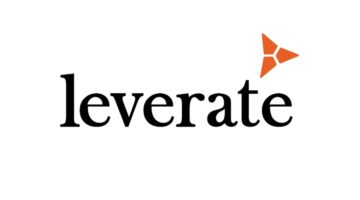
Facebook unveiled its ambitious cryptocurrency plan in June 2020: it partnered with a couple of dozen of other companies to launch a stablecoin project, then called Libra and now Diem. But, now that’s dead.
The Diem Association earlier this month officially announced its decision to sell its intellectual property and other assets related to running the Diem Payment Network to Silvergate Capital, the holding company of California-based crypto-friendly lender, Silvergate Bank, for a total consideration of $184 million.
So, what happened? Why does the social media giant have to pull such a major project?
The short answer is because of the Facebook brand.
Facebook, which has now rebranded itself to Meta and kept the old name only for its legacy social media platform, always touted that it established the stablecoin project independently in collaboration with its other partners. But, that was clearly not the case.
Diem (then Libra ) was meant to be used for transactions within the Facebook ecosystem: Facebook, Instagram, Messenger and whatnot. Though it was formed as a non-profit with Swiss headquarters, Facebook Messanger’s former Head, David Marcus was appointed as the Chief Executive. However, he resigned in November 2021.
And, all this happened when Facebook’s reputation was tainted with the Cambridge Analytics scandal, which raised concerns over how a massive tech company like that is handling user data.
Regulators around the world were just not comfortable allowing a platform like Facebook to launch a private currency of its own. One of the primary concerns was that a private currency of a company with a 2.91 billion monthly active user base might severely impact the fiat currencies. Many regulators and regulatory heads even publicly raised this concern.
Other concerns include the handling of financial data by a company, which was already facing flakes for its mishandling of user data. Mark Zuckerberg, the CEO of Facebook (now Meta) even had to testify in front of US Congress defending the crypto project.
Desperate Attempts
In its original form, Diem was about to be backed by a ‘collection of low-volatility assets like bank deposits and government securities, in currencies from stable and reputable central banks’. In other words, it was another stablecoin in the industry but with the stamp of Facebook.
The project faced regulatory backlash from the beginning that steered eight of its founding members, including Visa, Paypal, Stripe and Mastercard, away from the project.
The Facebook-led non-profit was so desperate that it even redesigned the stablecoin and even rebranded the entire project, calling it Libra, Diem, and its native wallet Calibra, Novi.
“When Facebook launched Diem, they immediately ran into regulatory issues around financial stability and data privacy,” said Joe Burnett, a Mining Analyst at Blockware Solutions.
“With the company already under pressure to improve their data privacy practices, which significantly affects their core business model of serving highly targeted ads based on data extracted from their users, it’s no surprise they wanted to avoid another uphill regulatory battle.”
Facebook’s Crypto Dream Is Not Over
Though the Diem Association has sold its assets, Facebook is not likely to say goodbye to the crypto industry. The social media company is now betting big on metaverse under the new brand Meta.
Zuckerburg was always vocal about the company plans of creating a metaverse and even showcased a bit of it in some odd demo. Even though a metaverse cannot be co-related directly with crypto, its dependencies on decentralized games and non-fungible tokens (NFTs) will make it necessary to have support for cryptocurrencies.
In addition, Diem retained the Novi wallet that can only store the Paxos stablecoin USDP.
“Our future initiatives to support commerce in the metaverse also may use blockchain-based assets in digital payments. Use of blockchain-based assets in payments are a relatively new and unproven technology, and the laws and regulations surrounding them are uncertain and evolving,” a recent regulatory filing by Meta stated.
Additionally, the company admitted that these types of digital payments are getting scrutinized by the regulators of several jurisdictions. Furthermore, it said that it cannot assure the roll-out of the products in a timely manner due to ‘significant uncertainty’.
“Every company will likely continue to have a crypto strategy,” Burnett added. “It’s tough to say what Meta’s next move will be, but it wouldn’t be too surprising to watch them follow the steps of MicroStrategy, Square (renamed Block) and Tesla who have accumulated a Bitcoin position on their balance sheet.”
“With Meta’s user growth slowing as of their last earnings report, they could accumulate Bitcoin with their excess cash flow to preserve and grow shareholder value while they look for other opportunities to generate alpha within the company.”
Meta is also reportedly planning to launch an NFT marketplace on Instagram, which is its photo-centric social media platform.
“I don’t think it is likely that Facebook will, itself, try and issue stablecoins again in the future,” said Mathieu Hardy, the Chief Product Officer at OSOM Finance. “But, the US regulators currently seem to believe that ‘private’ stablecoins will coexist along with a potential central bank-issued digital currency, so it’s entirely possible that Facebook simply teams up with a stablecoin issuer to do something that ends up looking very similar to what Diem wanted to achieve.”
Facebook unveiled its ambitious cryptocurrency plan in June 2020: it partnered with a couple of dozen of other companies to launch a stablecoin project, then called Libra and now Diem. But, now that’s dead.
The Diem Association earlier this month officially announced its decision to sell its intellectual property and other assets related to running the Diem Payment Network to Silvergate Capital, the holding company of California-based crypto-friendly lender, Silvergate Bank, for a total consideration of $184 million.
So, what happened? Why does the social media giant have to pull such a major project?
The short answer is because of the Facebook brand.
Facebook, which has now rebranded itself to Meta and kept the old name only for its legacy social media platform, always touted that it established the stablecoin project independently in collaboration with its other partners. But, that was clearly not the case.
Diem (then Libra ) was meant to be used for transactions within the Facebook ecosystem: Facebook, Instagram, Messenger and whatnot. Though it was formed as a non-profit with Swiss headquarters, Facebook Messanger’s former Head, David Marcus was appointed as the Chief Executive. However, he resigned in November 2021.
And, all this happened when Facebook’s reputation was tainted with the Cambridge Analytics scandal, which raised concerns over how a massive tech company like that is handling user data.
Regulators around the world were just not comfortable allowing a platform like Facebook to launch a private currency of its own. One of the primary concerns was that a private currency of a company with a 2.91 billion monthly active user base might severely impact the fiat currencies. Many regulators and regulatory heads even publicly raised this concern.
Other concerns include the handling of financial data by a company, which was already facing flakes for its mishandling of user data. Mark Zuckerberg, the CEO of Facebook (now Meta) even had to testify in front of US Congress defending the crypto project.
Desperate Attempts
In its original form, Diem was about to be backed by a ‘collection of low-volatility assets like bank deposits and government securities, in currencies from stable and reputable central banks’. In other words, it was another stablecoin in the industry but with the stamp of Facebook.
The project faced regulatory backlash from the beginning that steered eight of its founding members, including Visa, Paypal, Stripe and Mastercard, away from the project.
The Facebook-led non-profit was so desperate that it even redesigned the stablecoin and even rebranded the entire project, calling it Libra, Diem, and its native wallet Calibra, Novi.
“When Facebook launched Diem, they immediately ran into regulatory issues around financial stability and data privacy,” said Joe Burnett, a Mining Analyst at Blockware Solutions.
“With the company already under pressure to improve their data privacy practices, which significantly affects their core business model of serving highly targeted ads based on data extracted from their users, it’s no surprise they wanted to avoid another uphill regulatory battle.”
Facebook’s Crypto Dream Is Not Over
Though the Diem Association has sold its assets, Facebook is not likely to say goodbye to the crypto industry. The social media company is now betting big on metaverse under the new brand Meta.
Zuckerburg was always vocal about the company plans of creating a metaverse and even showcased a bit of it in some odd demo. Even though a metaverse cannot be co-related directly with crypto, its dependencies on decentralized games and non-fungible tokens (NFTs) will make it necessary to have support for cryptocurrencies.
In addition, Diem retained the Novi wallet that can only store the Paxos stablecoin USDP.
“Our future initiatives to support commerce in the metaverse also may use blockchain-based assets in digital payments. Use of blockchain-based assets in payments are a relatively new and unproven technology, and the laws and regulations surrounding them are uncertain and evolving,” a recent regulatory filing by Meta stated.
Additionally, the company admitted that these types of digital payments are getting scrutinized by the regulators of several jurisdictions. Furthermore, it said that it cannot assure the roll-out of the products in a timely manner due to ‘significant uncertainty’.
“Every company will likely continue to have a crypto strategy,” Burnett added. “It’s tough to say what Meta’s next move will be, but it wouldn’t be too surprising to watch them follow the steps of MicroStrategy, Square (renamed Block) and Tesla who have accumulated a Bitcoin position on their balance sheet.”
“With Meta’s user growth slowing as of their last earnings report, they could accumulate Bitcoin with their excess cash flow to preserve and grow shareholder value while they look for other opportunities to generate alpha within the company.”
Meta is also reportedly planning to launch an NFT marketplace on Instagram, which is its photo-centric social media platform.
“I don’t think it is likely that Facebook will, itself, try and issue stablecoins again in the future,” said Mathieu Hardy, the Chief Product Officer at OSOM Finance. “But, the US regulators currently seem to believe that ‘private’ stablecoins will coexist along with a potential central bank-issued digital currency, so it’s entirely possible that Facebook simply teams up with a stablecoin issuer to do something that ends up looking very similar to what Diem wanted to achieve.”
- 2020
- 2021
- About
- active
- addition
- Ads
- All
- Allowing
- Alpha
- already
- analyst
- analytics
- announced
- Another
- around
- Assets
- Association
- Bank
- Battle
- Beginning
- Betting
- Billion
- Bit
- Bitcoin
- business
- business model
- cambridge
- capital
- Cash
- cash flow
- ceo
- chief
- collaboration
- Commerce
- Companies
- company
- Congress
- consideration
- continue
- could
- Couple
- Creating
- crypto
- Crypto Industry
- cryptocurrencies
- cryptocurrency
- currencies
- Currency
- data
- data privacy
- David Marcus
- dead
- decentralized
- Demo
- Diem
- digital
- digital currency
- Digital Payments
- dozen
- Earnings
- ecosystem
- ends
- established
- executive
- faced
- facing
- Fiat
- finance
- financial
- financial data
- flow
- follow
- form
- future
- Games
- generate
- getting
- Government
- Grow
- Growth
- Handling
- head
- highly
- How
- HTTPS
- immediately
- Impact
- improve
- Including
- industry
- intellectual
- intellectual property
- issue
- issues
- IT
- jurisdictions
- launch
- Laws
- Laws and regulations
- Libra
- looking
- major
- mark
- mark zuckerberg
- marketplace
- mastercard
- Media
- Members
- Messenger
- Meta
- Metaverse
- MicroStrategy
- million
- Mining
- model
- move
- network
- NFT
- NFTs
- non-fungible tokens
- non-profit
- Novi Wallet
- Officer
- opportunities
- Other
- partnered
- partners
- payment
- payments
- PayPal
- planning
- platform
- pressure
- privacy
- private
- Product
- Products
- project
- property
- regulations
- Regulators
- regulatory
- report
- running
- Said
- Securities
- serving
- shareholder
- Short
- Silvergate
- similar
- Slowing
- So
- Social
- social media
- sold
- Solutions
- something
- square
- Stability
- stablecoin
- Stablecoins
- store
- Strategy
- stripe
- support
- surprise
- Swiss
- tech
- Tech Company
- Technology
- Tesla
- The Future
- The Metaverse
- the world
- Tokens
- Transactions
- us
- us congress
- US Regulators
- users
- value
- visa
- Wallet
- Watch
- What
- WHO
- within
- words
- world











